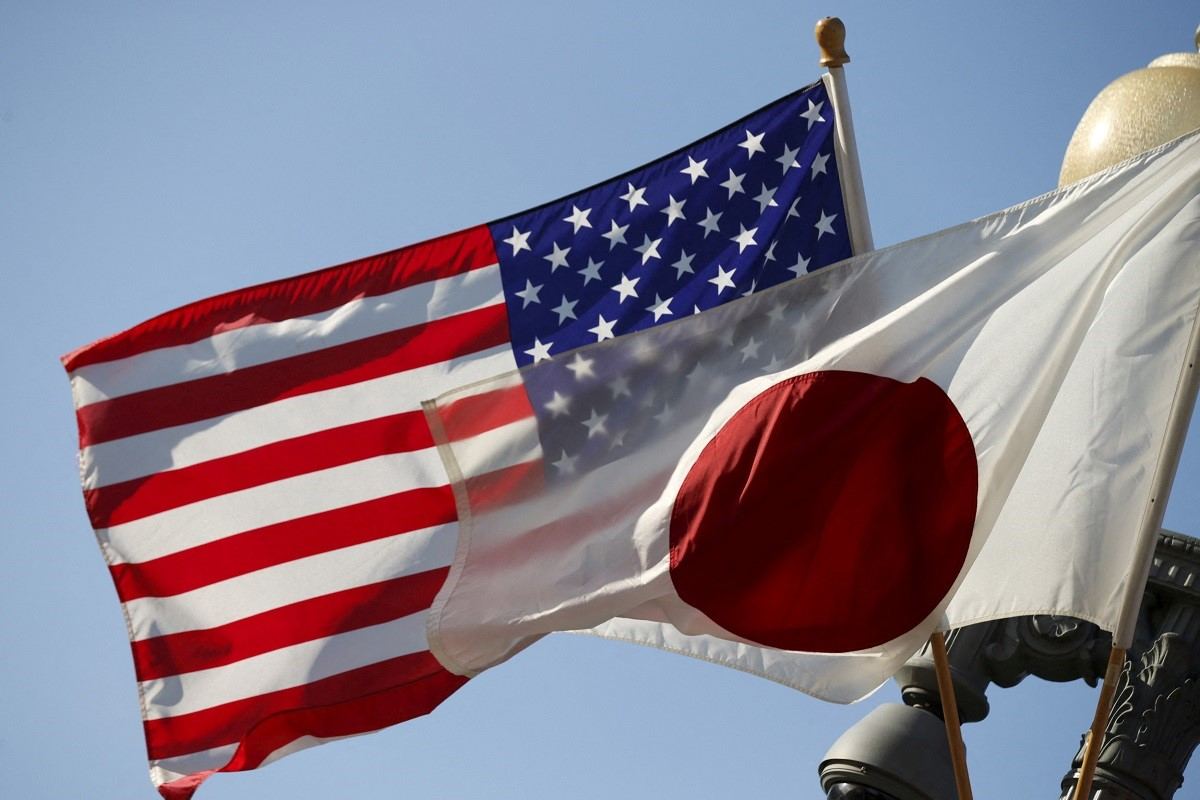Japan, U.S. to Join Forces on AI, Semiconductors; Seek to Counter China’s ‘Military-Civil Fusion’

The U.S. and Japan flags fly together outside the White House in Washington in April 2015.
1:14 JST, April 4, 2024
The Japan and U.S. governments will focus on “strategic cooperation” in the joint statement to be released after their summit on April 10, in an effort to work together to counter China’s hegemonic moves. The statement is expected to include specific measures in areas such as development of advanced technology, countermeasures against economic coercion, and support for developing countries.
Beijing is promoting “military-civil fusion” in the military use of scientific technology, alarming Tokyo and Washington. Arrangements are underway to declare in the joint statement that Japan and the United States share a position “as global leaders in the development of next-generation … technologies,” listing specific fields such as artificial intelligence, quantum technology, semiconductors and biotechnology.
The statement will also refer to several cooperation projects between Japanese and U.S. research institutes and private companies. These include cooperation on the development of AI for scientific research between Japan’s RIKEN, which is under the jurisdiction of the Education, Culture, Sports, Science and Technology Ministry, and Argonne National Laboratory, which is part of the U.S. Energy Department.
The two nations are expected to express their intention to take full-scale measures against economic coercion, the practice of pressurizing other countries by restricting trade and other measures. With regard to non-advanced semiconductors, for which China is improving its manufacturing capacity and increasing its global market share, the statement is likely to indicate a policy to resolve dependency on China by working with “like-minded countries to strengthen global semiconductor supply chains.”
In light of China’s suspension of all imports of Japanese marine products to protest the discharge of treated water from the Fukushima No. 1 nuclear power plant into the ocean, Japan and the United States will also refer to a plan to work together to “promote resilient and reliable seafood supply chains.” A working group will be established to explore new export routes, including to the United States.
As China expands its influence in the Indo-Pacific region with its economic power, Japan and the United States also intend to deepen cooperation in providing assistance to developing countries.
In the statement, the two nations will confirm an investment of $26.5 million in subsea cable systems for Micronesia and Tuvalu, and the expansion of funding for developing countries through the World Bank



